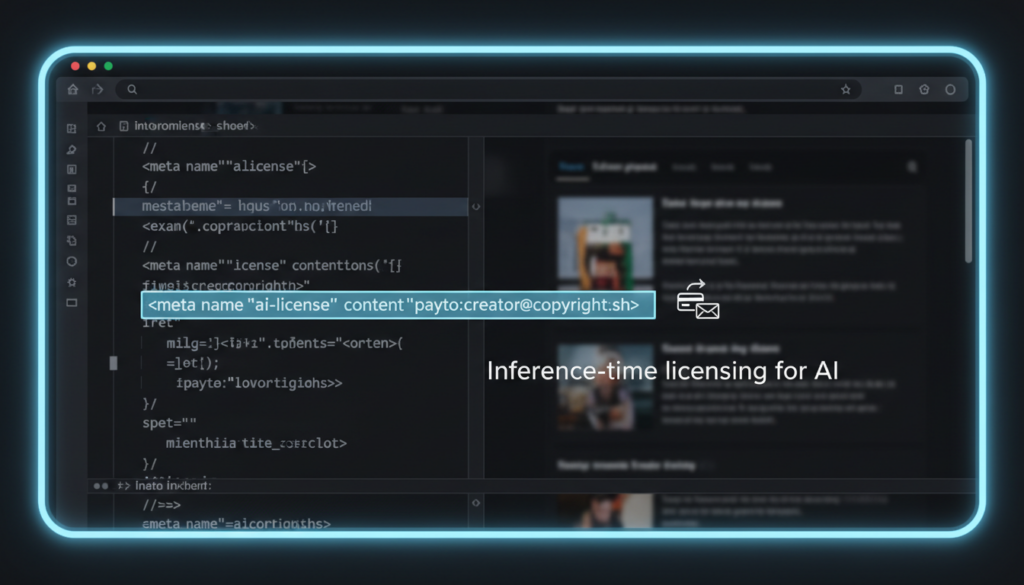Content licensing for AI shouldn’t require lawyers, contracts, or complex negotiations. It should be as simple as adding a line of HTML.
The Problem with Traditional Licensing
When Getty Images wanted to license their content to AI companies, they needed:
- Legal teams to draft contracts
- Business development to negotiate terms
- Custom API integrations for each AI company
- Months of back-and-forth discussions
This works for enterprises with millions of assets. But what about the 600 million websites that power the open web?
Meta Tags: Machine-Readable Rights
The web already has a universal language for machines: HTML meta tags. Search engines use them. Social platforms use them. Why shouldn’t AI systems use them too?
<meta name="ai-license" content="allow;distribution:private;price:0.15;payto:creator@copyright.sh">
This single line declares:
- Permission: AI can use this content
- Distribution: Only for private outputs (not public training data)
- Price: $0.15 per 1,000 tokens
- Payment: Where to send royalties
Why This Matters
Meta tags shift content licensing from negotiation to declaration. Creators set terms once, AI companies discover them automatically, and the system handles the rest.
No contracts. No integrations. No friction.
Just machine-readable rights that work at web scale.


Leave a Reply